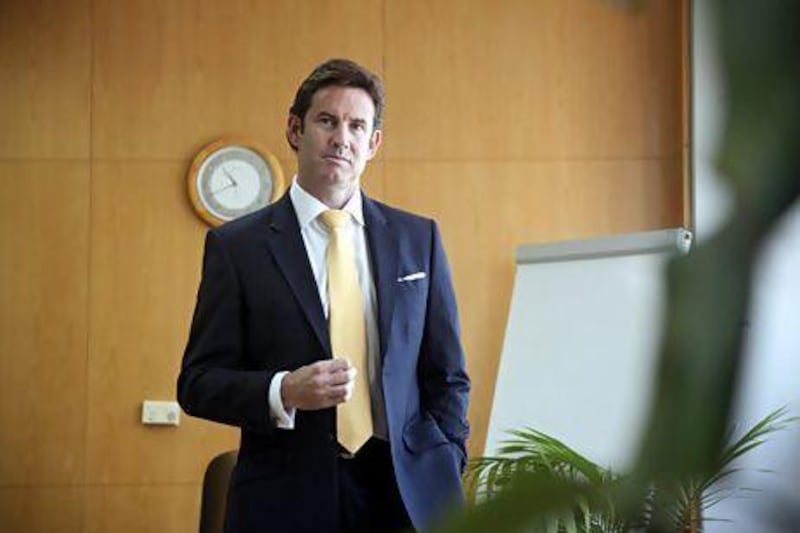As befits the head of asset management at the country's biggest bank, Mark Watts is a canny saver. The Briton has been working in the Emirates for more than three years at the National Bank of Abu Dhabi, after a career that has spanned the United States, the United Kingdom, Asia and the Middle East.
How would you describe your financial journey so far?
Nothing goes up in a straight line. I bought my first shares when I was 14 in the UK, cycling down to my bank on my school break, still wearing my school uniform. I have always been a fan of markets and finance having collected coins and banknotes from around the world for a number of years.
The privatisation of government-owned industry in the UK in the 1980s by Margaret Thatcher sealed my fascination with the markets. Latterly, I have been diversifying out of stock and bond markets, not because I think they will fall, but - because I work in finance - my salary and future is already driven by them.
I have been focusing on property and investment wine for 10 years now and will shortly be looking into collecting signatures of kings and queens of England, a market with a classic supply and demand mismatch.
Are you a spender or a saver?
You have to strike a balance. I was fortunate in my first job to join a company that provided a final salary pension scheme that had generous benefits. Starting saving early is the best thing you can do. Saving little and often is the way to go - and make sure it comes out of your account automatically, too.
What is your philosophy towards money?
"Money makes money" and "you have to speculate to accumulate" are a couple of my favourite phrases. The first refers to the fact that once you have saved you can put your cash to work to generate more money; the second refers to having to take some investment risk to increase your wealth. Risk is not a dirty word, you need to understand it and control it so it can work for you.
Have you made any financial mistakes along the way?
Investors who claim they never make mistakes are either not entirely honest with themselves, have not been investing long enough, or are very, very lucky. Making mistakes is all part of the learning process. Understanding why you made a mistake is the most valuable lesson and working it into your investment process going forward is the key action point.
Do you believe in planning for the future?
We never know what the future holds and many of us have aspirations. The best way to make a dream come to reality is to have a plan. Regular savings act as the bridge between dreams today and success tomorrow.
Is money important to you?
This is an interesting question and there is no right answer. The pursuit of wealth for you, your family and future generations is an entirely rational goal given the political and economic systems that dominate the globe today. When you get to the extremes of behaviour you get unhealthy desires about money. A good sense of perspective and a social conscience are key here.
What is your idea of financial freedom?
No debt and no need to work any longer.
What do you enjoy spending money on?
Travel and food. I love taking the family on holiday and experiencing new things. We purposely spend very little on accommodation, preferring instead to spend money on sights, experiences and local food.





